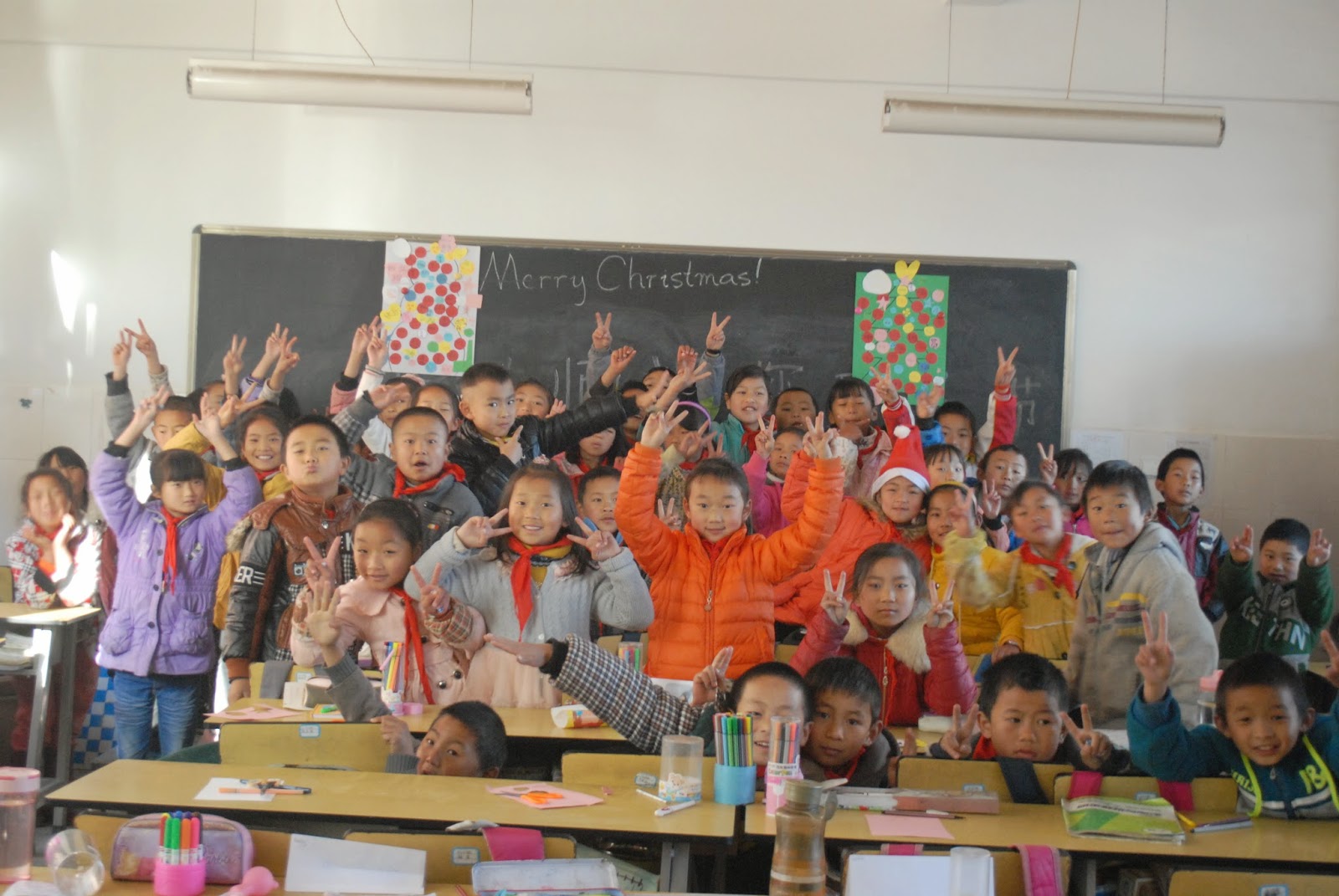This teaching competition has been going on for the last two days. All the other first-year TFC fellows taught English lessons on Thursday, while my cofellow, who teaches art, and I taught this morning. During the third period on Thursday I was go over a quiz--which most of my students didn't do to well on...writing letters is harder than you might think--in my worst-behaved class when the principal came by and gestured for me to come out and talk with her.
"You can go listen to the other fellows classes," she told me.
"Thank you," I responded, "but I'd like to finish this class."
"Oh, okay," she said, "but the banzhurens can cover your classes, don't worry."
"Since I've started, I'd like to finish," I explained.
The next class I went and listened and was urged by my vice-principal to stay in the afternoon and not teach my own classes. In both cases it was a strange combination of them being polite, but also wanting me to be there rather than teach my classes. On the one hand, it was a great opportunity to listen to other fellows' classes and see both their strengths and weaknesses and reflect on my own teaching. On the other hand, I wanted to teach my classes! Every time we don't teach our classes because of some event my local teachers all think it's no big deal. It's only my cofellows and me who get frustrated. In this case, it was a valuable experience, so it would have been fine if we'd known about it last week and could have planned around it, but as it was I really wanted to get through my lessons for the week.
The competition was strangely fake: teaching students you've never taught before, not knowing what they know already. But it was also interesting and reminded me of things that I like about my teaching routines, as well as things I can do better. I was able to convince them that I couldn't teach a Chinese song without more preparation time, so I taught them the first part of
We Wish You A Merry Christmas. We also did some body percussion, which they liked...but they had trouble snapping. I'm not sure if snapping is more common in the US or if I've just forgotten how uncoordinated many children are (but these were sixth graders...). And when I tried to get them to sing and do the body percussion together that was really hard. But hey, it was the first time they were doing something like that and I think it went pretty well. The local music teacher even said she particularly liked something that I did: using numbers to practice the scale rather than solfege. I can't take full responsibility for this idea--my music theory class in college encouraged us to use numbers--but it also jives well with the Chinese method of musical notation (no, it's not the same as ours) which uses numbers for scale degrees rather than a staff.
One of the hardest parts of the whole thing was sitting in the back of the classroom in the cold. It's been very cold the last three days. Cold, rainy, and foggy. The sun only broke through the fog this afternoon, but when it did the view was wonderful, with a snow topping several of the peaks on Gaoligongshan to the east of us.
 |
| It's more impressive in person...this is with no zoom. |
The competition finally concluded this morning and I was looking forward to teaching my best class this afternoon. And then I was told that there was a parent meeting in the afternoon.
"Will we teach the afternoon classes?" I asked.
"Nope!" was the reply.
Sigh. On the bright side, all the students were given $500 each for school supplies etc. (apparently this happens once a semester). And, being exhausted from the past couple of weeks (although profession development conference weekends are fun, they're tiring and take up the whole weekend because of travel), it was great to get a chance to rest up.
The funniest part about this competition was my students' reactions to seeing so many Americans. In the middle of my first class on Thursday morning a few of my students called out to me "Teacher! There are Americans out in the hallway!!!" Right after that class they crowded around the two other fellows who were there. They looked at James and asked me..."Is he your father?" I usually try not to laugh at things my students say, but I couldn't help myself this time. Partly because James is my age (though he does have a beard right now, which probably makes him appear older, especially to them), and partly because of course he looks nothing like my father.
 |
| James is the one in the green jacket. |
 |
| Morgan playing badminton with some of my third graders. |
Today some of my other students asked if my family was still here. At first I didn't understand what they were saying. And then I realized. "Oh, they're not my family, they're also Teach for China teachers! They teach English at nearby schools," I explained. It's funny how you can just not understand something when you're not expecting it.



















































